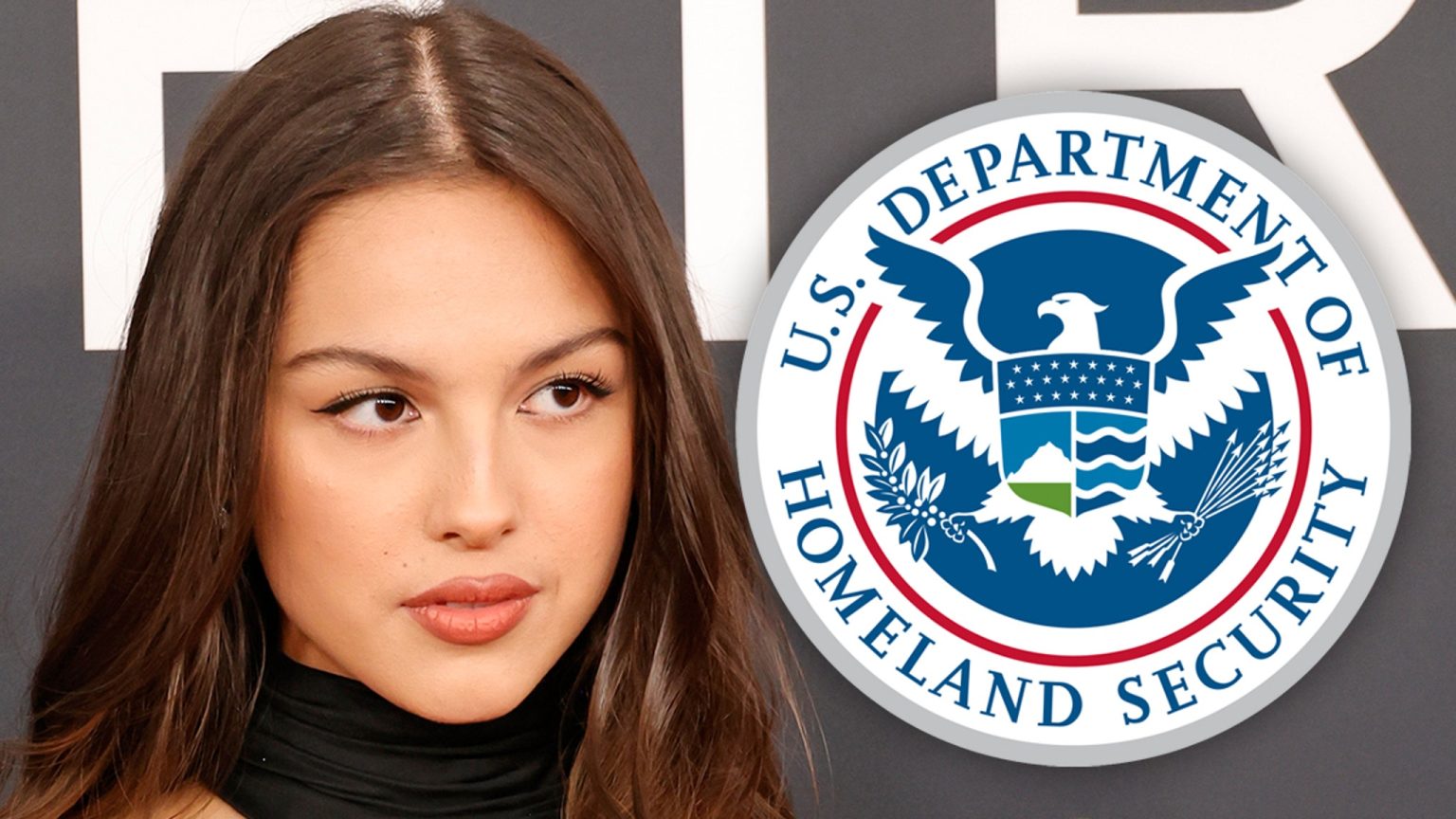Listen to the article
Olivia Rodrigo Condemns Federal Use of Her Music in Deportation Video
Pop star Olivia Rodrigo has publicly condemned the White House and Department of Homeland Security for using her hit song “All-American Bitch” in a video depicting immigration enforcement operations. The Grammy-winning artist left a scathing comment on the federal agencies’ Instagram posts, demanding: “don’t ever use my songs to promote your racist, hateful propaganda.”
The controversial video, shared this week on the official social media accounts of both the White House and DHS, featured footage of Immigration and Customs Enforcement (ICE) arrests and deportations, as well as scenes of individuals self-deporting, all set to Rodrigo’s track from her sophomore album “GUTS.”
The singer’s swift and pointed response highlights growing tensions between artists and government agencies over unauthorized use of creative content, particularly when it carries political implications that may contradict the artist’s personal values.
This isn’t the first time Rodrigo has spoken out on immigration issues. In June, she publicly criticized immigration raids in Los Angeles, where she has lived her entire life.
“I’m deeply upset about these violent deportations of my neighbors under the current administration,” Rodrigo stated at the time. “LA simply wouldn’t exist without immigrants. Treating hardworking community members with such little disrespect, empathy, and due process is awful.”
In that same statement, the 22-year-old artist emphasized her support for immigrant communities, saying, “I stand with the beautiful, diverse community of Los Angeles and with immigrants all across America. I stand for our right to freedom of speech and freedom to protest.”
The unauthorized use of Rodrigo’s music represents a significant misstep for federal agencies, as it appears no licensing permission was sought or granted. Music licensing experts note that government entities, like private organizations, are required to secure proper rights before using copyrighted music in promotional or informational content.
Rodrigo previously had a more amenable relationship with the White House during the Biden administration, having visited during efforts to promote COVID-19 vaccination among young Americans. However, her recent comments suggest a stark shift in her willingness to engage with the current administration.
The incident highlights broader questions about the intersection of art, politics, and government messaging. Artists increasingly find themselves navigating complex terrain when their work is co-opted for political purposes without consent, particularly when the messaging conflicts with their personal beliefs.
The DHS has not yet responded to requests for comment on the unauthorized use of Rodrigo’s music or her public rebuke.
Rodrigo, who rose to fame with her debut single “drivers license” in 2021, has become not only a chart-topping musician but also an increasingly vocal advocate on social and political issues important to her generation. Her response to this incident demonstrates how young artists are leveraging their platforms to speak out against policies and actions they oppose.
Music industry analysts note that this controversy could potentially lead to legal action under copyright law if the federal agencies fail to remove the content or properly license the music. The incident also serves as a reminder of the complex relationship between popular culture and political messaging in today’s digital landscape.
As immigration continues to be one of the most divisive policy areas in American politics, Rodrigo’s stance places her among numerous entertainment industry figures who have criticized recent immigration enforcement measures.
Fact Checker
Verify the accuracy of this article using The Disinformation Commission analysis and real-time sources.




11 Comments
While the government may claim this was a fair use of the song, Olivia Rodrigo is clearly upset by the unauthorized usage. As an artist, she has a right to control how her creative work is represented, especially in a political context.
I agree, the government’s actions here seem like a blatant disregard for Rodrigo’s intellectual property rights and her personal views. This sets a troubling precedent if left unchallenged.
Olivia Rodrigo’s strong response highlights the delicate balance between artistic expression and government use of copyrighted material. This incident underscores the need for clearer guidelines and greater respect for artists’ rights, even when the content has political implications.
It’s concerning to see the government using an artist’s work in this way, especially given Olivia Rodrigo’s public stance on immigration issues. This raises important questions about the ethical use of copyrighted material by public agencies.
I agree, the unauthorized use of Rodrigo’s song is a clear overreach by the government. Artists should have the final say on how their creative work is used, especially when it involves political messaging that may conflict with their own views.
It’s disappointing to see the White House and DHS using Olivia Rodrigo’s music in this way, especially given her past criticisms of immigration enforcement policies. This seems like a transparent attempt to co-opt her popularity for political messaging.
Absolutely, this is a flagrant violation of her intellectual property rights. The government shouldn’t be able to appropriate an artist’s work to promote views that contradict the artist’s own values and advocacy.
Wow, this is a really troubling situation. Using an artist’s song without permission to promote a political agenda they don’t support is a major violation. Olivia Rodrigo is right to speak out against this blatant misuse of her creative work.
I agree, this is a clear-cut case of unauthorized use and a concerning abuse of power by the government agencies involved. Artists should have full control over how their work is used.
This situation really highlights the ongoing tension between artists’ rights and the government’s use of copyrighted material for political purposes. Olivia Rodrigo’s strong reaction is understandable, and I hope this leads to a broader discussion about protecting artists’ intellectual property.
I’m curious to see how this situation unfolds. Olivia Rodrigo has been outspoken on immigration issues, so her strong rebuke of the government’s actions is not surprising. This raises important questions about the boundaries of fair use and artistic freedom.